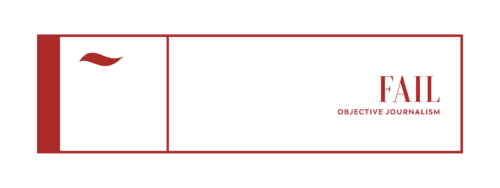The decision comes after Facebook received heated criticism for its role in spreading a deluge of political misinformation during the U.S. presidential election, like one story that falsely said the Pope had endorsed Donald Trump.
To combat fake news, Facebook has partnered with a shortlist of media organizations, including Snopes and ABC News, that are part of an international fact-checking network led by Poynter, a nonprofit school for journalism located in St. Petersburg, Florida.
Starting as a test with a small percentage of its users in the United States, Facebook will make it easier to report news stories that are fake or misleading. Once third-party fact checkers have confirmed that the story is fake, it will be labeled as such and demoted in the News Feed.
A company spokesperson told Business Insider that the social network will also use other signals, like algorithms that detect whether a story that appears fake is going viral, to determine if it should label the story as fake and bury it in peoples’ feeds.
“We’ve focused our efforts on the worst of the worst, on the clear hoaxes spread by spammers for their own gain, and on engaging both our community and third party organizations,” Facebook News Feed chief Adam Mosseri said in a company blog post on Thursday.
Facebook’s new label for fake news.Facebook
A team of Facebook researchers will also review website domains and send sites that appear to be fake or spoofed (like “washingtonpost.co”) to third-party fact checkers, a Facebook spokesperson said. Of the 42 news organizations that have committed to Poynter’s fact-checking code of ethics, Facebook is starting out with the following four Snopes, Factcheck.org, ABC News, and PolitiFact.
“We are only involved to the extent that Facebook relies on the list of signatories to our code of principles as a starting point for the organizations it chooses to verify,” a Poynter spokesperson told Business Insider. “Facebook is the only organization certifying third party fact-checkers on its platform.”
Facebook has given its four initial fact-checking partners access to a tool that will let them label stories in the News Feed as fake, a Facebook spokesperson said. The spokesperson said that Facebook is not paying the organizations to fact check.
Cracking down on ads for fake newsFacebook users will be able to report stories they think are fake news.Facebook
The websites that Facebook determines to be fake news organizations or spoofed domains will also not be able to sell ads on the social network. Owners of fake news sites can make thousands of dollars per month through internet ads.
Facebook has repeatedly said that it’s not a media company, but rather an open technology platform that relies on media publishers and its users to share accurate information.
“We do not think of ourselves as editors,” Facebook head of media partnerships Patrick Walkersaid during a recent journalism conference in Dublin. “We believe it’s essential that Facebook stay out of the business of deciding what issues the world should read about. That’s what editors do.”
Facebook will show this warning before someone shares a story that has been labeled as fake.Facebook
Politicians like President Obama and Hillary Clinton have recently expressed concern about the prevalence of misinformation on social media, with Obama calling it a “dust cloud of nonsense” and Clinton calling it “an epidemic.”Facebook CEO Mark Zuckerberg has meanwhile gone so far as to say that it’s “pretty crazy” for some to suggest that fake news on Facebook could have swayed the election in favor of either candidate.
But after facing significant backlash for its denial to fact check stories on its network, Zuckerberg now calls Facebook a “new kind of platform” with a responsibility to “build a space where people can be informed.”
“Facebook is a new kind of platform different from anything before it. I think of Facebook as a technology company, but I recognize we have a greater responsibility than just building technology that information flows through,” the Facebook founder said in a Thursday post.
“While we don’t write the news stories you read and share, we also recognize we’re more than just a distributor of news. We’re a new kind of platform for public discourse — and that means we have a new kind of responsibility to enable people to have the most meaningful conversations, and to build a space where people can be informed.”
You can read Zuckerberg’s full post below:
